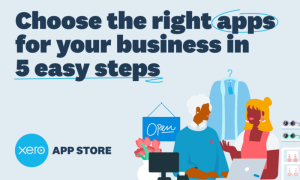Modern e-commerce

Modern buyers want to easily access the product catalog through the Internet, but they also need the help of personal phones or knowledgeable sales representatives. They often search for products on smart phones, send RFQ online, and discuss prices over the phone. Therefore, enterprises in particular need to maintain the privacy and security of leaked personal information when transmitting through the Internet. When managing e-commerce, protecting personal information through best practices is the best way.
When it comes to online shopping, many consumers like to shop comfortably at home. This is why they are converting to e-commerce. In order to have safe personal shopping experience, individuals must ensure the security of personal information. Many websites, especially those that collect and process credit card transactions, use encryption technology to prevent the transmission of sensitive personal information. When purchasing items through online directories or company websites, they can rest assured that their personal information is protected from falling into the wrong hands.
However, despite the use of encryption technology, consumers still need to understand security options and best practices for protecting personal information. The first step in ensuring security is to educate yourself on best practices for security. The easiest way is through tutorials and online discussions. Reading articles on topics and watching self-study videos on YouTube also provide a good opportunity for individuals to learn how to protect information. The Department of Homeland Security and other federal agencies are providing a variety of guidance and discussion groups to educate consumers about the importance of personal information protection.
Websites and companies also use Secure Sockets Layer (SSL) technology to protect consumer information. Users must ensure that their computer’s Internet Security Kit can handle websites that require SSL encryption. This technology is used in websites and companies dealing with credit card transactions. The encrypted information is sent through a secure Internet connection between the buyer’s computer and the operator’s website. The buyer’s personal information and order confirmation will be transferred between the buyer and the seller before being sent to the payment gateway company.
Some companies use their own internal systems to protect e-commerce websites and data. Typically, these internal systems can be purchased or leased, but users must search for and compare security options. Some security options include application security, database security, application testing, firewall and memory protection.
In addition to SSL (Secure Sockets Layer), some companies use layered security options. These enterprises usually use a technology called VPN (Virtual Private Network). VPN allows you to conduct business on the road or online at the airport.
Some websites only accept credit and/or debit cards. If a website accepts only one type of payment, consumers should investigate the company to confirm that they have other options. Some companies will receive major credit and debit card companies and electronic checks. When consumers shop online, they should often check whether they accept the type of payment that the company is willing to pay. If a company accepts some form of payment, the website is likely to be a legitimate company.
Importantly, consumers need to know where their information is going. Many companies use it to steal information directly from consumers. But websites are likely to protect consumers. The best way is to use a firewall for protection. Firewalls prevent unnecessary traffic from entering the website. It also acts as a barrier to hackers who want to use the website.







